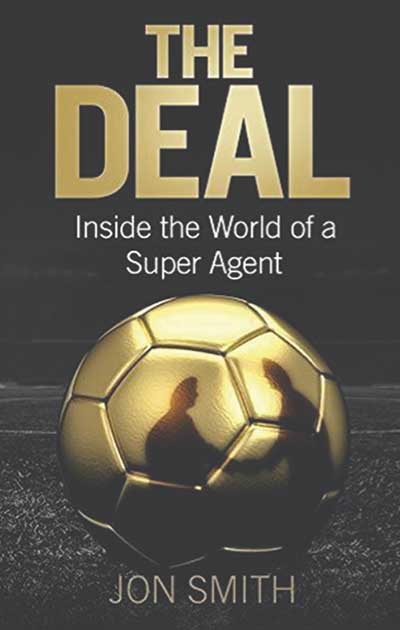
Constable, £9.99
Reviewed by Richard Pendleton
From WSC 369, November 2017
Buy the book
Jon Smith made his money in music management and arrived in football when it was struggling to shake off a public image which was somewhere between dog fighting and mob violence. He built his reputation as being one of the “good” agents and this book provides a thorough look at the mechanisms that make each transfer work and competing motivations, while also being an uneasy read. The Deal opens with an account of how the author finds himself embroiled in a shady business deal in Ukraine and during which you find yourself on his side. By the end of the book, however, it’s incredibly hard not to feel more sympathy for the violent conmen, for this is what they were, than you should.
Having provided the exciting preamble to a story which involves the reader standing on the sidelines while someone earns a lot of money, the book settles back into an extended apologia for hardcore capitalism. “Money is nothing to be afraid of,” Smith says, confidently, as though transfers were wholly commensurate with fans’ earnings and not indicative of a world in which players were worth significantly more than their weight in gold. “Who cares how much players earn if they are successful and make us happy?” Rather more people than you might like to admit, comes the answer.
“Football is a business,” he says in another digression, before later hymning his own role in creating the Premier League which many will see as a morally uncertain claim to fame. “The top agents facilitated football’s transformation into a multi-billion pound industry,” he adds, overlooking that financial value and worth are not always synonymous.
His involvement with the England team at the 1990 World Cup is hugely interesting but, again, it is viewed through the prism of what money was being earned by whom. One such “opportunity”, involving Peter Shilton catching a ball wearing a T-shirt that bore the legend “Coca-Cola”, made the deep-pocketed sponsor very happy indeed. By the time Smith recounts a bizarre story in which he finds £2,000 in the drawer of a hotel room and keeps it after he checked out because nobody had claimed it, you feel much like someone who has been in a room with a car salesman for too long.
Some of the book is revealing, either deliberately so or inadvertently. Smith talks very movingly about the death of his first wife and his struggle to become successful, which may explain why he is so eager to proclaim his success now that he is a millionaire, but any therapist worth their salt might wonder whether the drive to make money might be a way of dealing with other, more difficult emotions which can’t be put on a balance sheet.
You get the sense that Smith is a plausible, persuasive and even likeable individual who more than justifies his claim to have been present at some of English football’s decisive moments. What you make of these moments, when football’s soul hung in the balance and, by extension, what you make of Smith, will depend on your own perspective.